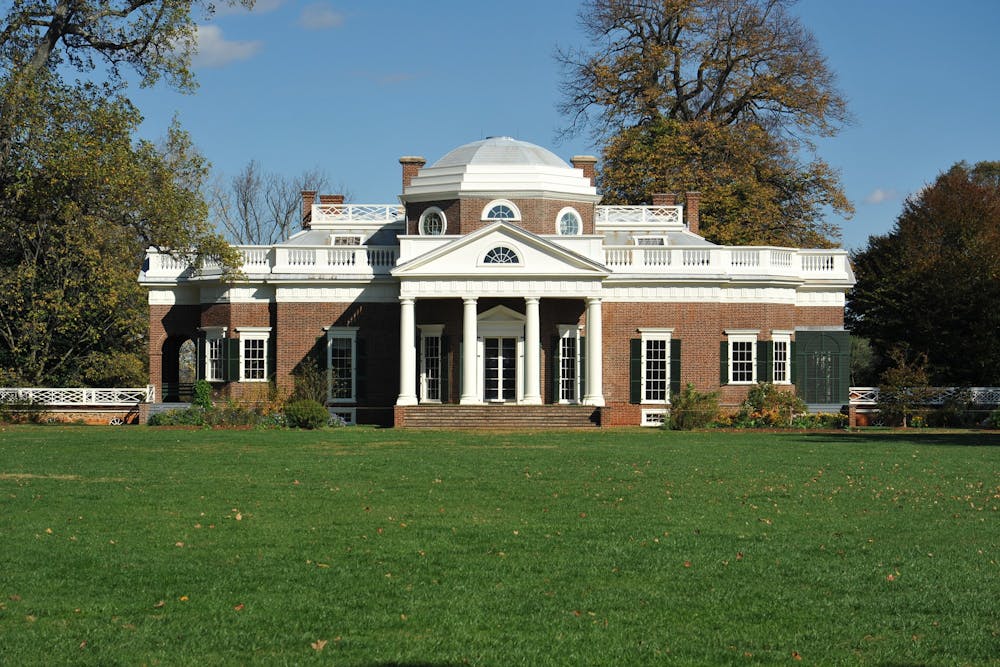Monticello launched a pilot program this academic year that allows free admission for all undergraduate and graduate students at the University and Piedmont Virginia Community College for the 2022-23 academic year. Students with valid student IDs can reserve free tickets for either the self-guided tour or the Gardens and Grounds pass, which typically cost $32 and $22 per adult, respectively.
Marianne Doyle, Monticello’s vice president of diversity, equity, accessibility and inclusion, helped launch the program at the beginning of the academic year. She said part of her goal within the role is to increase access to people that don’t typically visit Monticello.
“U.Va. is such a significant component of the Charlottesville community that we needed to open things up for students to come and visit us,” Doyle said. “We decided in order to increase access, we needed to remove barriers.”
The 5,000-acre Monticello plantation was home to Thomas Jefferson, founder of the University and third U.S. president, as well as his family and up to 130 enslaved laborers at any given time. The estate features a 43-room mansion made of signature red brick and white columns as well as a botanical garden containing plants from across the globe. Through the tour, visitors can learn about Thomas Jefferson, the ideas of freedom and the realities of enslavement in the U.S.
Fourth-year Engineering student Lauren Askew participated in the self-guided tour at Monticello Saturday. Askew said the trip resonated with her and helped actualize Jefferson’s life.
“We talk about him all the time, as either a president or as the guy who wrote the Declaration of Independence,” Askew said. “But I think a lot of times, students kind of forget that he's not just this mythical feat guy who created the University, he was just a man. He did a lot of complicated stuff because he was human.”
To attend a tour, students can reserve free tickets through the website ahead of their visit. It is recommended that visitors arrive at Monticello at least 30 minutes prior to their reservation time. Askew said the QR codes with information for the self-guided tour were easy to operate throughout Monticello and recommends bringing headphones for the audio portion.
“I definitely think students should utilize the free tickets,” Askew said. “It's not that far away, it's a good outdoor outing, and you can learn a lot.”
Assoc. Portuguese Professor Lilian Feitosa brings students from her class based on “Race, Place, and Equity” to Monticello as part of the course. Feitosa said experiencing Monticello in-person helps make in-class readings and lessons less abstract.
“It is important for students to visit Monticello because it is so significant to the history of the University,” Feitosa said.
For assistance with their experience, Feitosa recommends students read contextual and historical information on the Monticello website before the tour.
In addition to offering free tickets to University and PVCC students, Monticello is engaged in a program called Museums for All through the Institute of Museum and Library Services that allows free admissions to families and recipients of the Supplemental Nutrition Federal Program.
“We're really trying to think creatively and broadly about how we open up our doors for access both for our students and for individuals who might not have the financial means to come to Monticello but want to come and learn more about our nation's history,” Doyle said.
Along with being a National Historical Landmark, Monticello is registered as a Site of Conscience, meaning the museum connects past struggles to modern-day human rights movements.
“It's a place of thought and contemplation,” Doyle said. “Not just on the life and legacy of Thomas Jefferson, but on the founding of democracy, the founding of our country and what that means, both in terms of the ideals that were pinned in the Declaration of Independence, as well as in the tragic aspects of our country's founding through enslavement and through the institution of slavery.”
As for the future of the program, Doyle said she hopes it will continue past the 2023 academic year and aims to expand the connections between Monticello and the University.
“We are looking forward to engaging more and more U.Va. students as time goes on,” Doyle said. “There’s a positive and beautiful energy to that collaboration.”







